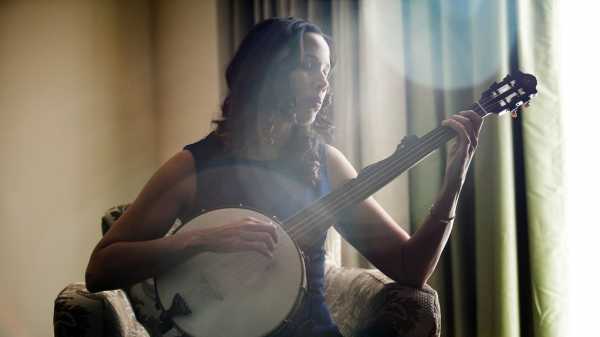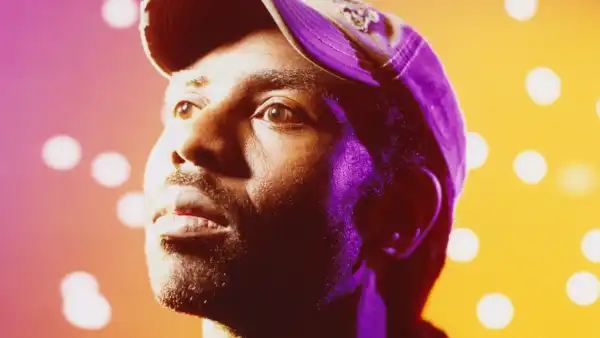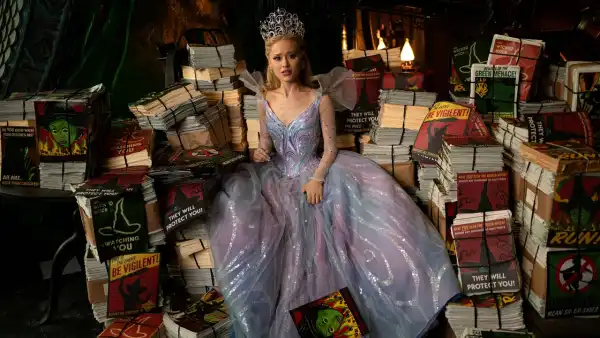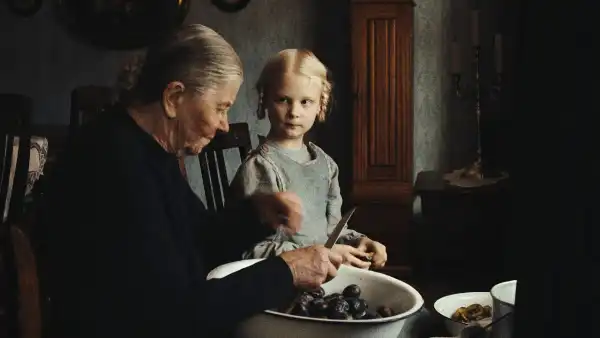
I didn’t know that I needed an opera podcast in my life until I heard the trailer for “Aria Code,” a new ten-episode series from the New York classical-music station WQXR and the Metropolitan Opera, and swooned with joy. Three episodes in, I’m still swooning. The show’s concept is simple: its host, Rhiannon Giddens, introduces us to one famous opera aria each week; experts provide insight, laced with music; we hear the aria in its entirety. That’s it. It’s an elegantly constructed, effortlessly listenable series that does exactly what you’d hope a general-interest opera podcast would do. It also avoids most of what you’d hope it would avoid—pandering, dumbing down, trying to make opera seem hip. (It gets away with its silly name, just barely, by claiming to “decode” what makes arias great.) The show seems to understand that there are plenty of people who know a little bit about opera and might like to know more; to do that, it makes use of the Met’s archive and extensive community of artists and thinkers. In a time when we might especially crave beauty, art, and being whisked off to other realms, it delivers exactly that, and it’s one of the most immediately pleasurable podcasts I’ve heard in a while.
The series starts with a bang—“Sempre libera,” from Verdi’s “La Traviata,” in which Violetta, a courtesan in nineteenth-century Paris, sings of love and freedom. The episode begins with Giddens greeting us warmly, if a bit awkwardly. After introducing the show, she introduces herself, in the studiously offhand tone of someone accustomed to trying not to sound boastful. “I co-founded a band called the Carolina Chocolate Drops—yes, we were a black string band, we played banjos, we won a Grammy, it was cool,” she says. “The MacArthur Foundation called me one day to say I was a genius.” Though the show mostly avoids straining to seem modern and fun, there are exceptions, such as in the episode titles (“Verdi’s ‘La Traviata’: Opera’s Original ‘Pretty Woman’ ”) and in some of Giddens’s narration. Violetta, Giddens says, is “a high-class escort, basically, and she’s got it pretty good—except for the whole dying-of-tuberculosis thing.” Later, she says that Violetta is “having all of the feels.” But Giddens also provides friendliness, charisma, and chops: having studied opera at Oberlin before becoming a string-band star, she knows her high notes and corsets.
The heart of each episode is the aria and its explicators, one of whom is always an opera singer. In the first, it’s the soprano Diana Damrau; she’s joined by the dramaturge Cori Ellison and the writer, research scientist, and former call girl Brooke Magnanti, who provides a sensitive and straightforward perspective on sex workers and love. (The guests tend to be fascinating people with deliciously listenable voices and, often enough, accents.) Verdi, Ellison says, was “all about difficult choices,” and Violetta “is choosing between love and freedom.” The choice arrives in Act I, when Alfredo, a young nobleman, declares his love to Violetta. Damrau says, in a lovely German accent, “This is really a little shock for her. She can collect her thoughts, and she feels things she has not felt before.”
Magnanti agrees. “I can definitely relate to being completely unaware that love is even a possibility until it’s literally right there in front of you,” she says. We ponder this as the background music blooms into the glorious “Libiamo ne’lieti calici,” which sounds just like falling in love. Later, Damrau says, “The people are gone and the house is empty. And then we go like a big zoom into Violetta’s heart.” And she says—here, we hear a clip of her singing—“ ‘È strano!’ ” Damrau continues speaking, almost breathing her words, translating as she goes. “ ‘È strano.’ Strange. ‘Scolpiti ho quegli accenti.’ ” Even Damrau’s speaking voice is gorgeous, and she notes how, in the music, the violins start pattering quickly, like a racing pulse, a detail I’d never noticed. “You can almost hear her heartbeat,” Damrau says. “As it goes up, you have long notes, and you hear softness in her voice, as well. She’s deeply—how do you say—struck by what just happened, this scene with Alfredo.” These comments float beside the music artfully, gracefully. (The show’s producer is Merrin Lazyan, the editor is Brendan Francis Newnam, and the sound designer is Matt Boynton.) The three speakers aren’t gabbing with one another; each speaks individually and intimately, confiding her thoughts to you in a tone of warm expertise. Together, they tell a story in concert with one another and the music. It’s easy to tell who’s who, because they all sound distinctive and talk about different things. The discussion-with-music is so beautifully done that it’s like an aria in itself.
“Now is the moment that the huge orchestra starts playing the allegro,” Damrau says later in the episode. She sings some syllables. “Sempre libera. In this moment it’s not happiness. It’s not joy. It’s almost frenetic. It’s really—she’s desperate. You can hear it in the music and she always goes up, higher and higher.” We hear Damrau singing these dizzying heights. “It’s almost like a little mad scene,” she says. Ellison adds that Violetta is going through “this incredible gamut of emotions, which Verdi maps out quite clearly,” and which takes her “from long lyrical lines to the most dizzying coloratura. It sort of has this relentless quality, because she’s trying to just whip herself into this lather of pleasure and enjoyment.” It’s all quite wonderful. After the analysis is over, Giddens returns and introduces the playing of the whole aria, which we listen to with fresh ears: more enlightened about how it’s constructed, what the lyrics mean, what the orchestra is doing, and what the composer intended. It’s enough to whip us up into our own lather of pleasure and enjoyment.
The Met and WQXR have other worthy podcasts, but for the mildly sophisticated layperson “Aria Code” is a good place to start. It feels immediately accessible and wonderfully focussed, with a hint of narrative to encourage the curious. Happily, I enjoyed Episodes 2 and 3 almost as much as the first—I came into the series knowing and loving “La Traviata,” but I have never warmed to Episode 2’s subject, Puccini’s “La Bohème,” and am largely ignorant about Episode 3’s subject, Verdi’s “Otello.” In that episode, a Shakespeare scholar, a cognitive psychologist, the director Ruben Santiago-Hudson, and Plácido Domingo weigh in on “Dio! Mi potevi scagliar.” Giddens, whose guidance becomes more and more appealing as the series progresses, gives the listener a thoughtful overview of race, casting, and the long history of blackface in “Otello”—a tradition that is, thankfully, changing. “I, for one, am happy that a tenor can approach ‘Otello’ without having to pick up that makeup box that says ‘Otello brown,’ ” she says. “I ain’t makin’ that up.”
“Aria Code” is clearly intended to encourage opera fandom, to promote the Met, and to expand the listenership of WQXR, objectives I happily endorse. In the world of classical music and opera, efforts to find new listeners often involve spoonfuls of sugar to make the medicine go down, which can feel insulting to the art, the artists, and the audiences. “Aria Code,” despite its occasional chumminess, is not one of those efforts. It encourages fandom through substance, by showing us the art itself, illuminating its workings, and educating us about recitativo and coloratura. Listening to the first episode made me feverish to see “La Traviata” again, which was fortuitous: the day “Aria Code” made its début, so did the Met’s new production, conducted by its new music director, Yannick Nézet-Séguin. Our new friend Diana Damrau is Violetta. Strategists: bravo.
Sourse: newyorker.com






